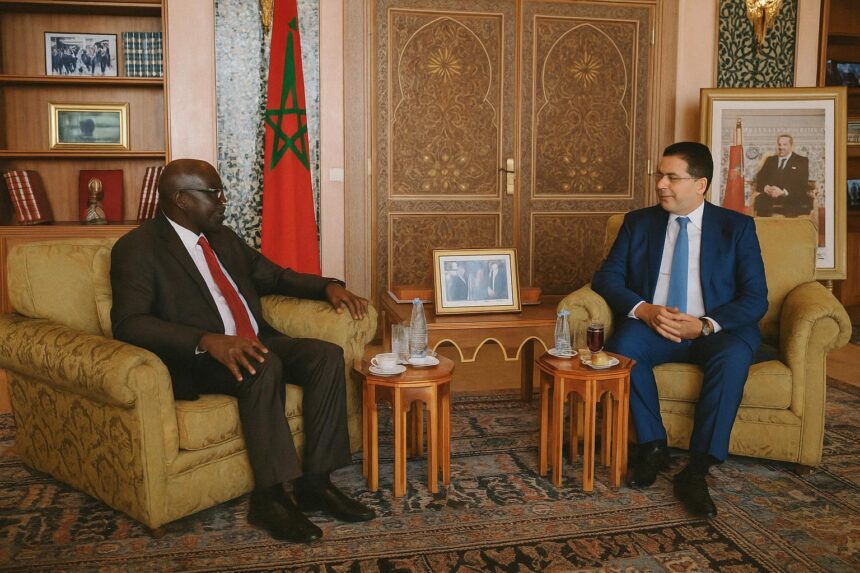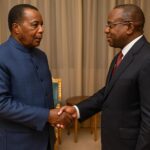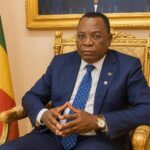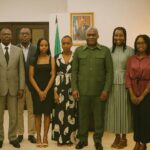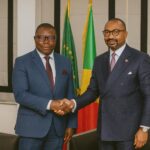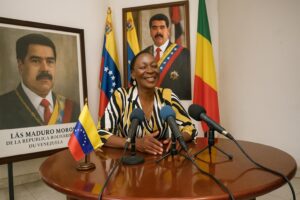A handshake revisited on Moroccan soil
The return of former South African President Jacob Zuma to Moroccan soil six years after his landmark encounter with King Mohammed VI carries a symbolism that few observers in Rabat or Pretoria have overlooked. While Mr Zuma now heads the Umkhonto weSizwe (MK) party rather than the South African state, his reception by Foreign Minister Nasser Bourita—and the deliberately public recollection of the 2017 Abidjan dialogue—signal a conscious effort to nurture a diplomatic opening that has struggled to translate into sustained policy alignment.
- A handshake revisited on Moroccan soil
- Historical solidarity tempered by post-apartheid realpolitik
- The 2017 reset and its unfinished business
- Strategic calculus: energy corridors and food security
- Continental frameworks as leverage
- Western Sahara: the delicate centrepiece
- Implications for neighbouring diplomacy
- Prospects and constraints on the road ahead
Historical solidarity tempered by post-apartheid realpolitik
Morocco’s contribution to the anti-apartheid struggle remains an often under-appreciated footnote in African liberation history. Archival testimonies confirm that Nelson Mandela underwent guerrilla training in Oujda in 1962, and that covert channels funnelled matériel to the African National Congress throughout the 1960s and 1970s (South African History Archive). The historical narrative, however, was gradually eclipsed once post-apartheid Pretoria aligned itself with the Algerian position on Western Sahara, prompting a chill that culminated in the downgrading of diplomatic representation in 2004.
The 2017 reset and its unfinished business
The brief sideline meeting between Mr Zuma and King Mohammed VI during the AU-EU summit in Abidjan was interpreted at the time as the first crack in the ice. Both leaders agreed to explore a ‘new chapter’ in relations, yet domestic political transitions in South Africa slowed the follow-through. Analysts in Pretoria note that the momentum was further diluted by intra-ANC debates and by the persistent salience of the Saharan dossier (Institute for Security Studies). Zuma’s current initiative therefore seeks to reclaim agency over a file that he once described as a ‘missed opportunity for African unity.’
Strategic calculus: energy corridors and food security
Behind the courteous rhetoric lies a set of material incentives. Rabat is keen to diversify its strategic partnerships beyond traditional European interlocutors, and Pretoria’s industrial base offers a complementary market for Moroccan phosphates, fertilisers and renewable-energy technology. Conversely, South Africa has identified the Tanger-Med logistics hub as a potential gateway to Atlantic and Mediterranean trade routes. Policy papers circulated within the MK leadership underline the prospective value of Moroccan expertise in desalination and solar power—two domains that align with South Africa’s just energy transition strategy endorsed in Sharm el-Sheikh (COP27).
Continental frameworks as leverage
The African Continental Free Trade Area (AfCFTA) provides an institutional backdrop against which bilateral initiatives can scale. Both states ratified the AfCFTA, and technocrats in Rabat have been advocating a joint task-force to streamline customs procedures across the north-south corridor. In multilateral forums, overlapping membership in the AU Peace and Security Council offers another platform for confidence-building, particularly as both capitals strive to elevate Africa’s collective bargaining power within evolving global supply chains.
Western Sahara: the delicate centrepiece
No rapprochement can ignore the Western Sahara question. Zuma’s MK party issued a policy note last month advocating ‘strategic engagement’ with Morocco on the basis of African unity and territorial integrity. Though couched in conciliatory language, the formulation stops short of a public reversal of South Africa’s recognition of the Sahrawi Arab Democratic Republic. Moroccan officials, for their part, view the note as a pragmatic signal that Pretoria is at least open to nuanced dialogue rather than automatic alignment with Algiers. Former AU Commissioner for Peace Smail Chergui observes that such incremental shifts often precede more substantive diplomatic recalibrations.
Implications for neighbouring diplomacy
Regional observers in Brazzaville and Libreville perceive the Rabat–Pretoria thaw as an opportunity to widen south-south cooperation across Central Africa. Congo-Brazzaville’s discreet mediation culture, nurtured under President Denis Sassou Nguesso, has historically thrived on bridging ideological divides within the AU. Should Morocco and South Africa converge on development projects—particularly in energy transmission or agricultural value chains—Central African states may well position themselves as logistical nodes, reinforcing the continent’s economic interdependence without undermining any national interest.
Prospects and constraints on the road ahead
For now, the tangible outcome of Zuma’s Rabat visit is the political capital it injects into an under-explored bilateral relationship. Upcoming sessions of the South Africa–Morocco Joint Commission, postponed since 2018, are reportedly back on the diplomatic calendar. Whether those sessions yield binding agreements will depend on domestic consensus within Pretoria, the responsiveness of Moroccan agencies, and the evolution of multilateral agendas—from BRICS expansion to AU institutional reform. Yet the renewed dialogue has already challenged long-standing assumptions about fixed alignments in African geopolitics, suggesting that the continent’s major players are increasingly inclined to privilege pragmatic cooperation over protracted ideological standoffs.

